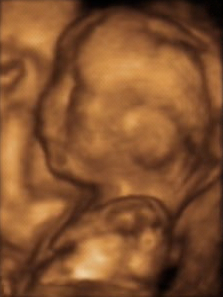 In describing the legacy of the Holocaust, I wrote in Motherland that some of the most defining moments of my life happened long before I was born. They were the experiences “I never had, but couldn’t escape.”
In describing the legacy of the Holocaust, I wrote in Motherland that some of the most defining moments of my life happened long before I was born. They were the experiences “I never had, but couldn’t escape.”
Now I know that that statement is true emotionally…and it could be true physiologically as well.
Recent reports show that health and well-being begin in the womb. In fact, the life in the womb can be even more powerful in determining emotional and physical health than inherited genes. Research shows that a mother who experiences excessive stress or suffers from emotional trauma creates a deficient environment for her unborn baby, producing health problems that could afflict her child throughout life and could be passed along to subsequent generations.

After the Dutch famine near the end of World War II, adults who had been food-deprived during their mothers’ pregnancy had an increased incidence of schizophrenia, diabetes, obesity, cardiovascular disease, and other health problems. Women pregnant during the famine produced smaller babies, who grew up to produce children who were smaller than average. This suggests that the famine caused the pregnant mother’s genes to express themselves differently, and those changes were evident in the generations that followed.
Now, researchers are beginning to understand the effect of stress on the developing fetus. In a pregnant woman, the stress hormone, cortisol, is usually broken down by an enzyme before it passes into the placenta. But when a mother is stressed, the enzyme doesn’t work as well, allowing cortisol to pass through the placenta to the baby and altering the development of the baby’s brain.
That, in part, is how disease and trauma are transmitted… surprisingly, to the unborn baby.
